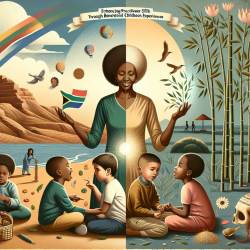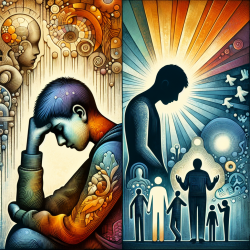Understanding Benevolent Childhood Experiences (BCEs)
Benevolent Childhood Experiences (BCEs) are positive experiences during childhood that contribute to an individual's resilience and mental well-being. These experiences include having supportive adults, positive peer relationships, and a stable home environment. BCEs have been shown to play a significant role in shaping mental health outcomes, particularly in mitigating the risk of depression.
The Study: BCEs in a South African Context
The research article "Resilience to depression: the role of benevolent childhood experiences in a South African sample" explores the relationship between BCEs and depressive symptoms among young adults in South Africa. The study involved 313 young adults from an economically volatile community, examining the impact of BCEs on their mental health.
Key Findings
- Most participants reported experiencing all 10 BCEs, with having at least one good friend being the most common.
- The study found no significant association between BCEs and depression when adjusted for socio-demographic factors and family adversity.
- Specific BCEs like having a good friend, comforting beliefs, and self-comfort were associated with lower odds of moderate depression.
Implications for Practitioners
Practitioners working with young adults, especially in contexts similar to South Africa, can benefit from understanding the role of BCEs in mental health. Here are some ways to enhance practice:
- Promote Positive Relationships: Encourage the development of supportive friendships and mentor relationships.
- Foster Comforting Beliefs: Support clients in developing beliefs that provide comfort and stability.
- Enhance Self-Comfort: Work on building self-esteem and self-acceptance in clients.
Encouraging Further Research
The study highlights the need for further research to understand the complex interplay between BCEs and depression in different cultural contexts. Practitioners are encouraged to contribute to this growing body of research by exploring BCEs in their practice and sharing findings with the wider community.
To read the original research paper, please follow this link: Resilience to depression: the role of benevolent childhood experiences in a South African sample.










